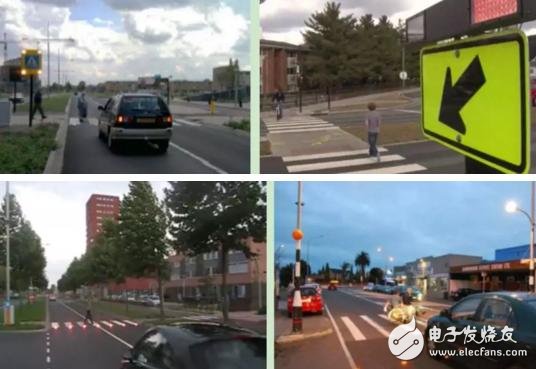Traditionally, road monitoring systems have used visible light CCTV cameras. In order to be able to monitor and detect at night, lighting must be installed. A visible light CCTV camera creates a blind spot when exposed to sunlight. In addition, vehicles or pedestrians moving in the shadows are sometimes not detected. However, infrared thermal imaging cameras do not have the above limitations. Infrared thermal imaging technology is based on the fact that all objects in the natural world above the absolute zero will emit different wavelengths of infrared light, and the infrared radiation emitted by the object will be used for imaging. It can be used normally in the absence of light, even if it is exposed to direct sunlight, it will not create any blind spots. So it will not be affected by the sun's glare, night, headlights, road water and smog. At present, infrared thermal imaging technology has been used in the field of intelligent transportation to detect early fires, detect traffic incidents, collect motor vehicles, non-motor vehicles and pedestrian data, and assist driving. Today, we mainly discuss the application of pedestrian detection based on infrared thermal imaging technology in intelligent transportation. Pedestrians are vulnerable groups in road traffic and are often seriously injured or even killed in the event of a traffic accident. Since 2017, the “Indecent Pedestrian Capture†system installed throughout the country has regulated the behavior of drivers and polite pedestrians to a certain extent, and raised the sense of courtesy; but when faced with poor lighting conditions, blind spots, bad weather and dusk In the event of adverse environmental factors such as nighttime, traffic accidents in which cars collide with pedestrians often occur. When a vehicle hits a pedestrian, the speed of the vehicle determines the degree of injury to the vulnerable group. The speed of the vehicle determines the amount of kinetic energy released during the impact. If the motor vehicle travels at 30km/h, the chance of causing fatal damage is only 15%. At 50km/h, the chance of fatal damage increases to 60%. When the speed reaches 60km/h, the chance of fatal damage increases to 85%. . The speed of the vehicle during impact depends on the driver's reaction time and braking capacity. There are many factors that affect the reaction time: lack of concentration, bad weather, poor visibility, drunk driving and so on. Poor view may also be due to objects or vehicles parked nearby that block the line of sight. It is too late when the driver of the motor vehicle finally sees the pedestrian. The warning device can help the driver to recognize the pedestrians crossing the road and reduce the speed in time. However, the warning light that has been flashing in the traditional case has little effect because the driver does not receive a real warning to reduce driving habits such as speed. Studies have shown that the fact that the lights that are activated when pedestrians pass can improve the driver's attention more effectively, so that they can slow down in a short time. Pedestrian detector based on thermal imaging technology can detect and track pedestrians in the picture around the clock. When pedestrians cross the street, the pedestrian information will be transmitted to the spike control system at the first time. The passing vehicles will be used to remind the passing vehicles, and the vehicle can be decelerated in advance. After the pedestrian completely passes the intersection, the flashing nail stops flashing, the motor vehicle passes normally, avoiding the unnecessary waiting of the vehicle, and increasing the safety of pedestrian crossing. Most of the existing signal control systems mainly consider the fine-tuning time from the perspective of the motor vehicle. From the perspective of pedestrians, most of them only consider meeting the shortest pedestrian crossing time, or pedestrians crossing the street to increase the pedestrian crossing time. The rigid pedestrian timing has a contradiction with the large disruption of pedestrian crossing traffic. Therefore, it is very necessary to use technical means to make a reasonable timing. Pedestrian active request buttons are currently used in the industry, but this technology is very inefficient due to the following conditions: Pedestrians do not have the initiative or habit of pressing the button; Pedestrian button position setting is unreasonable or not obvious; Cyclists and people with disabilities do not have easy access to the buttons; Although the pedestrian presses the button and crosses the road ahead of time when no motor vehicle passes, the next pedestrian green light cycle is wasted. The thermal imaging based pedestrian detector can effectively solve the above problems. The pedestrian detector changes the pedestrian presence information from active request to passive detection. Once a pedestrian enters the waiting area of ​​the street, the pedestrian detector automatically transmits the presence information to the signal; after the pedestrian leaves the waiting area of ​​the street, the pedestrian has information interruption. In addition, the signal can make a more reasonable control strategy based on the number of pedestrians waiting to pass the pedestrian's priority and release time. Amd Gaming Pc,Gaming Computer,Gaming Pc I7,Pc Gamer Shenzhen Innovative Cloud Computer Co., Ltd. , https://www.xcypc.com



